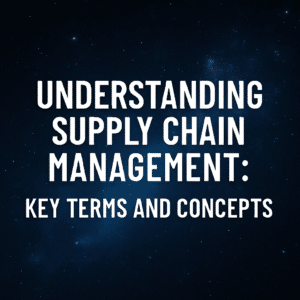I don’t know why I didn’t realize this sooner, but I may have discovered the real key to transformation success in the coming years: human capital management (HCM) software implementations.
I have spent a good deal of my career analyzing why ERP implementations fail. But if my digital transformation and ERP predictions for 2020 are true, ERP implementations are not well positioned to succeed in the coming years. Immature cloud products, a shortage of qualified resources, and reckless behavior from larger systems integrators all pose a bleak landscape for organizations trying to navigate their transformations.

Table of Contents
ToggleHCM implementations: Shelter from the storm
HCM implementations, on the other hand, offer a beacon of hope. It’s one thing that may truly transform our business rather than heading down an ERP implementation money pit. It has the potential to deliver a much higher ROI than investments in “digital core” financials, inventory management, and other capabilities that may only provide incremental measurable improvements and a lot of operational risk (see our 2020 ERP and HCM Report for more on this).
Bob Dylan once said it best: “In a world of steel-eyed death, and men who are fighting to be warm, ‘Come in,’ she said, ‘I’ll give you shelter from the storm.’” HCM implementations can provide that shelter for your digital transformation efforts.
Why are HCM implementations so important?
While some companies are over-investing in unproven ERP technologies that may not deliver meaningful benefits, HCM implementations are quietly transforming the asset most important to many organizations: people. For many organizations, better recruiting, managing and retention of their top talent will prove to be a much more competitive advantage than better financial reporting or faster payment of vendor invoices.
Companies have spent decades investing in financials, inventory management, warehouse management, and even CRM systems, but they generally haven’t invested as heavily in HCM software over the years. All this is happening as employees are becoming more skilled, more marketable, and more mobile. While the importance of individual employees and team members have become increasingly important, the divide between ERP and HCM investments has also grown.
The risk / reward of HCM implementations
HCM may affect a larger population of people than an ERP or CRM implementation, but they can actually deliver more value with less risk. For industries that spend too much on employee retention and morale-related issues each year, better performance management, learning and development, and other human capital capabilities can deliver much higher business benefits than having more efficient accounting or inventory management competencies.
Here’s another important data point: the leading HCM solutions are in many cases more mature than their ERP counterparts. For example, those pursuing Workday vs. SAP SuccessFactors evaluations will find that those two products are much more mature and established than an SAP S/4HANA vs. Oracle ERP Cloud comparison. While many ERP systems are struggling in their transitions to the cloud, these HCM solutions moved to the cloud years ago.

Companies most likely to benefit from successful HCM implementations
Many organizations have something to gain from more mature human capital competencies. For some, it’s even a matter of survival.
Take, for example, brick and mortar retailers. Most may not be able to compete with Amazon, Alibaba, or Flipkart’s eCommerce dominance in their respective markets, so they must find other ways to compete. For many, it is not enough to simply build eCommerce and other omnichannel competencies as part of their retail digital transformations. Instead, they need to provide superior customer service and use relationships and deep customer insights to compete.
HCM capabilities can help retail companies weather the storm of Amazon and an ever-changing market. If they can provide better talent and service through effective human capital management, they may not only survive, but actually thrive in a hypercompetitive environment.
For other industries outside of retail, the benefits of successful HCM implementations may not be as obvious, but they are still prevalent. For example, the Wall Street Journal recently published a study about how US manufacturing companies are relying on college-educated shop floor workers more than ever. With low unemployment, a competitive job market, and a limited number of college graduates, even industries such as manufacturing can transform themselves to better compete via an effective HCM strategy.
So, ask yourself this: how might our company benefit from a stronger and more modern HCM strategy? How might better recruiting, retention, performance management, learning and development, and other HCM competencies better position our company for success?
HCM implementations can be a less disruptive risk to organizations
Overall risk is another factor that tilts in favor of HCM implementations. While ERP implementations force massive changes for a massive number of people within your organization, HCM is less intrusive.
For example, overhauling an entire chart of accounts, inventory numbering schemes, pick pack and ship processes, sales order entry standards, and transforming other core workflows can be enough to crush an organization. More importantly, the benefits are largely in favor of the organization as a whole (at least in theory) instead of the individual employees.
HCM implementations, on the other hand, focus more on the overall employee experience. It focuses on making employees happier, more productive, more fairly paid, more clearly understanding their roles in the organization, etc. Assuming we can help the HR department through the work modifications they will see as a result, it is in some ways less risky and less disruptive to manage people through these sorts of HCM related changes. (Note that I still didn’t say it was going to be easy, though.)
ERP implementations are still a necessary evil for many organizations
Even if you believe HCM has a better risk-reward profile, many organizations have no choice but to embark on a broader ERP implementation. They may be growing quickly, operating off of old legacy products, or being forced off their current ERP systems – as is the case with SAP’s 2025 deadline. Or, it could be that your company requires a more dedicated focus on customer experience as part of digital transformation, which is understandable.
These situations may require a financial or ERP transformation, but they needn’t consume all the resources. For example, we are working with a number of companies who are implementing SAP S/4HANA ERP and SuccessFactors HCM as part of their overarching digital transformation. Too many of them are spending a disproportionate amount of time, energy, money, and resources on just getting S/4HANA up and running, while the SuccessFactors scope is neglected and punted into the future as a result.
Is this an opportunity to reprioritize digital transformation to focus more on HCM and less on core financials? Perhaps our HR departments can become champions of such a movement.
HCM implementations are still no easy feat
None of this means that HCM is a silver bullet or an easy answer. As we have learned from our lessons from 1,000 HCM implementations, these initiatives are still difficult in their own way. They affect a high number of people and can result in a major transformational shift for employees.
For example, employee self-service can be a culture shock for employees who are used to calling or emailing the HR department to handle benefits, vacation requests, and other HR functions. Moving the needle on just this one seemingly trivial shift for hundreds or thousands of employees is not an easy undertaking. People don’t like change, no matter how small or how beneficial it may be.
This is why it is important to effectively prepare for your HCM implementation via a clear strategy and plan. This should include a number of focus areas, including your future and desired state business processes, an organizational change strategy, and an overall integration strategy.

Bottom line: rethink your HCM strategy within your overarching digital transformation
There is no easy answer, but it may be time to at least challenge the conventional wisdom that we should invest millions in core ERP systems without focusing enough on HCM. You may not be in a position to completely abandon your ERP imitative or needs, but you may be in a position to rethink priorities and focus.
Advice from independent HCM consultants such as our team at Third Stage can help coach and ensure that your project is successful in the coming years. Feel free to contact me to arrange an informal video conference or phone call to brainstorm ideas related to your initiative – I am happy to be a sounding board as you embark on your HCM and digital transformation journey!





